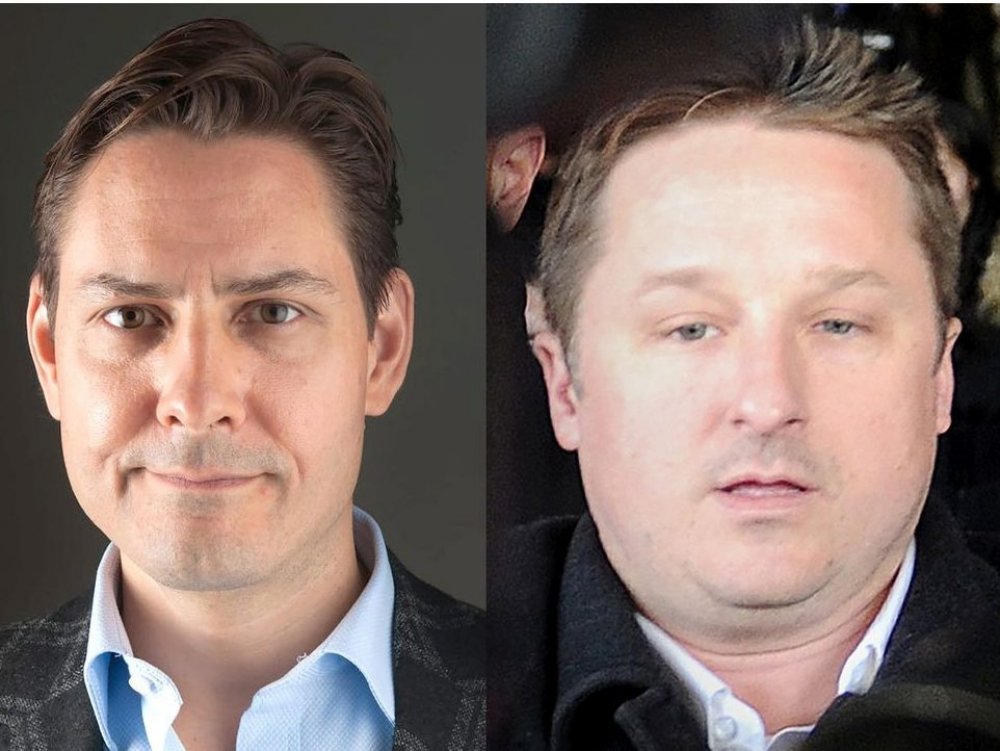[ad_1]
StoreDot, an Israeli developer of utmost fast-charging (XFC) battery know-how for electrical automobiles, unveiled this month what it referred to as the “world’s first” silicon-dominant battery prototype able to recharging in simply 10 minutes.
The corporate’s cylindrical cells use a 4680 format — 46 millimeters large by 80 millimeters lengthy — that’s favored by world carmakers, particularly electrical car large Tesla.
The battery tech has been in improvement for 3 years and consists of 5 patents in cell design, StoreDot mentioned in an announcement final week. The design “will increase throughput and addresses security and efficiency points sometimes related to the arduous case construction of cylindrical cells,” the corporate mentioned.
StoreDot mentioned it was now engaged on organising a manufacturing line with Eve Vitality, the corporate’s manufacturing companion in China.
“Attaining the aim of utmost quick charging a cylindrical cell in solely 10 minutes has been on StoreDot’s know-how roadmap from day one,” mentioned StoreDot CEO Dr. Doron Myersdorf. “It’s extremely vital that we are able to provide Electrical Car producers the selection of cell codecs, using our XFC know-how that can overcome the present boundaries to EV [electric vehicle] possession: vary and charging anxiousness.” This refers back to the concern of a battery working out mid-journey and the motive force getting stranded at a charging station.
Myersdorf revealed that the corporate was now in “superior discussions” with numerous world automotive producers with plans “to produce them with varied XFC cells, enabling a speedy transition to a zero-emissions electrified future.”
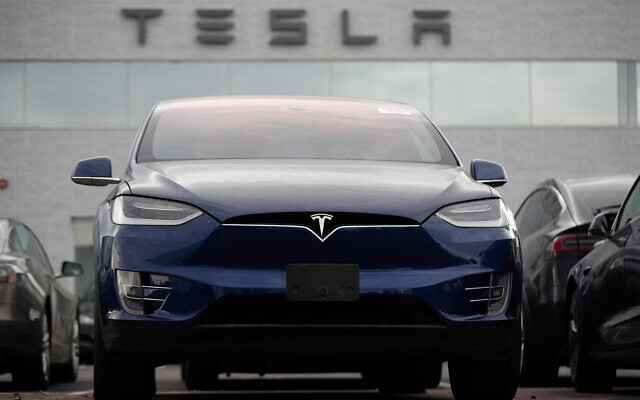
A 2019 Tesla Mannequin X at a Tesla in Littleton, Colorado, Oct. 20, 2019. Illustrative. (AP Picture/David Zalubowski, File)
The 4680 format battery shall be prepared for manufacturing at scale in 2024, the corporate mentioned, as will its first-generation fast-charging pouch cell, additionally aimed on the EV market. StoreDot can be engaged on excessive vitality density (XED) solid-state applied sciences, that can permit for longer battery operability and can enter mass manufacturing in 2028.
Based in 2012, Herzliya-based StoreDot has been creating lithium ion-based battery applied sciences, utilizing nanomaterials and natural and inorganic compounds, that allow ultra-fast charging for the cell and industrial markets. The method redefines the chemistry of typical lithium-ion batteries, taking electrical car charging occasions from hours to minutes, the corporate says.
This breakthrough is achieved primarily by changing graphite within the cell’s anode with metalloid nanoparticles, equivalent to silicon, to beat main points in security, cycle life and cell swelling throughout the charging course of.
StoreDot’s strategic buyers embrace BP Ventures, the enterprise arm of the British multinational oil and fuel agency BP plc, Daimler AG, the maker of the Mercedes Benz vehicles, Japanese digital multinational TDK, and Samsung Ventures. The corporate has raised $130 million up to now.
In 2019, StoreDot used a small type issue of its XFC know-how to show the world’s first full reside cost of a two-wheeled electrical car in 5 minutes. A yr later, it demonstrated the scalability of its XFC batteries for different units by totally charging a industrial drone, additionally in 5 minutes. One other milestone adopted in January 2021 when StoreDot launched engineering samples of batteries.
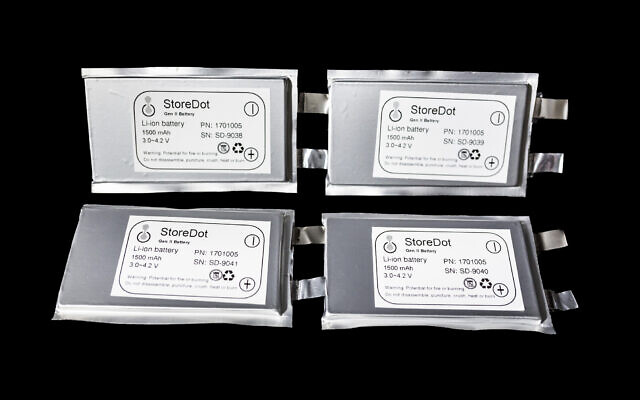
StoreDot’s battery engineering samples (Courtesy)
The corporate has additionally beforehand demonstrated ultra-fast charging occasions for telephones and scooters.
Late final month, StoreDot filed a patent for know-how that creates a “booster” function that permits the battery to research the potential of the charging station in real-time and modify the battery’s skill to hold excessive present charges. These techniques are supposed to considerably enhance the speed of miles per minute of charging, the corporate mentioned.
It additionally mentioned it might make the know-how obtainable to different organizations “to assist broaden present charging infrastructure, pace up the worldwide adoption of electrical automobiles and create a zero-emissions world sooner or later.”
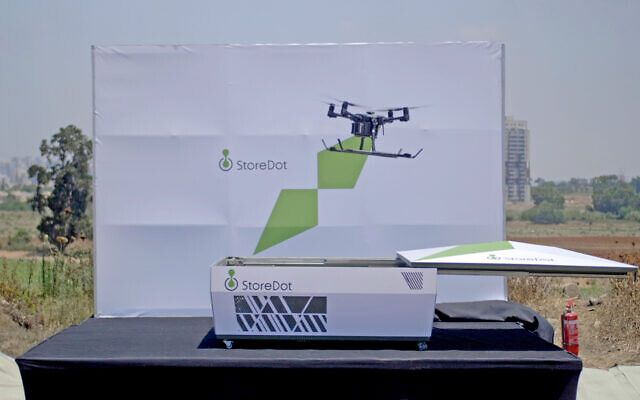
A drone with StoreDot’s battery approaches a charging station (Courtesy)
“We need to work with and assist the worldwide group, together with automotive producers and infrastructure suppliers of their missions as nicely, particularly when the trade is going through numerous charging infrastructure deployment challenges, not least the worldwide semiconductor scarcity,” Myersdorf mentioned in August.
Just a few months earlier, in Could, StoreDot obtained approval from NASA to conduct what the startup says is the primary space-based analysis and improvement program into new battery supplies.
The experiment shall be amongst a specific variety of Israeli analysis initiatives to be carried out on the Worldwide Area Station, as a part of Israel’s Rakia program. Collectively backed by the Israeli Ministry of Science and Expertise and the Ramon Basis, the Rakia (sky in Hebrew) program is a part of Axiom Area Ax-1, the world’s first non-public mission to the ISS.
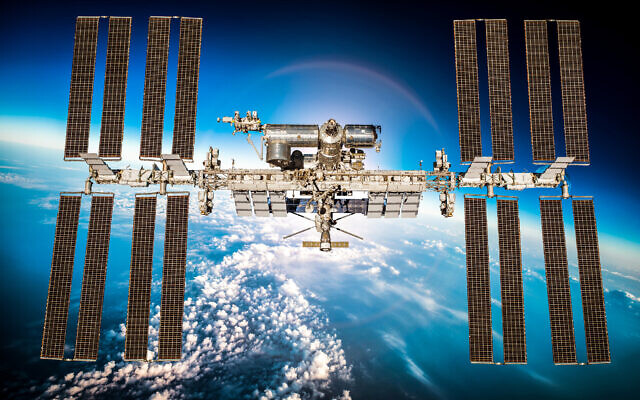
A picture of the Worldwide Area Station (Andrey Armyagov Dreamstime)
As a part of the Rakia program, Eytan Stibbe will journey to the ISS on the SpaceX Dragon capsule subsequent yr, turning into the second Israeli astronaut in house. On board, he’ll undertake 200 hours of scientific initiatives and academic outreach, together with a sequence of reside classes for Israeli schoolchildren.
In Could, the Ramon Basis and the Ministry of Science introduced the 44 chosen initiatives for this system, lots of which nonetheless want NASA approval. The initiatives hail from a large spectrum of scientific and technological disciplines – radiation, genomics, immunology, neural functioning, quantum communication, astrophysics, agri-tech, communications, optics, ophthalmology, medical units, and illness analysis.
On board the ISS, StoreDot’s XFC know-how will endure two weeks of rigorous testing in zero gravity situations.
“We now have form of exhausted avenues for brand spanking new supplies analysis on Earth,” mentioned Myersdorf advised The Instances of Israel on the time. “We are attempting to see if we are able to speed up a breakthrough in new supplies in zero gravity situations.”
A part of the problem of making progressive batteries is to know what is occurring contained in the chargers. To have the ability to isolate and determine chemical processes, battery cells must endure testing in excessive situations: excessive and low warmth, low oxygen ranges, and different excessive eventualities to have the ability to “sift by varied eventualities of battery degradation,” he mentioned.
Experimenting on quick charging in house has not been completed earlier than, he mentioned, and the method might assist isolate defects and degradation mechanisms that don’t happen on Earth.
Myersdorf mentioned he doesn’t count on any main breakthroughs from this primary experiment in house, however creating a technique of testing out supplies on Earth and in house and evaluating the outcomes is “pioneering” and may have implications for industries far past batteries, he mentioned.
“As that is one thing that has by no means completed earlier than it’s tough to know precisely what we are going to uncover, however the methodology of analyzing reactions in house has large potential and can allow us uncover issues that merely wouldn’t be potential on Earth,” mentioned Myersdorf.
Shoshanna Solomon contributed to this report.
[ad_2]
Source link

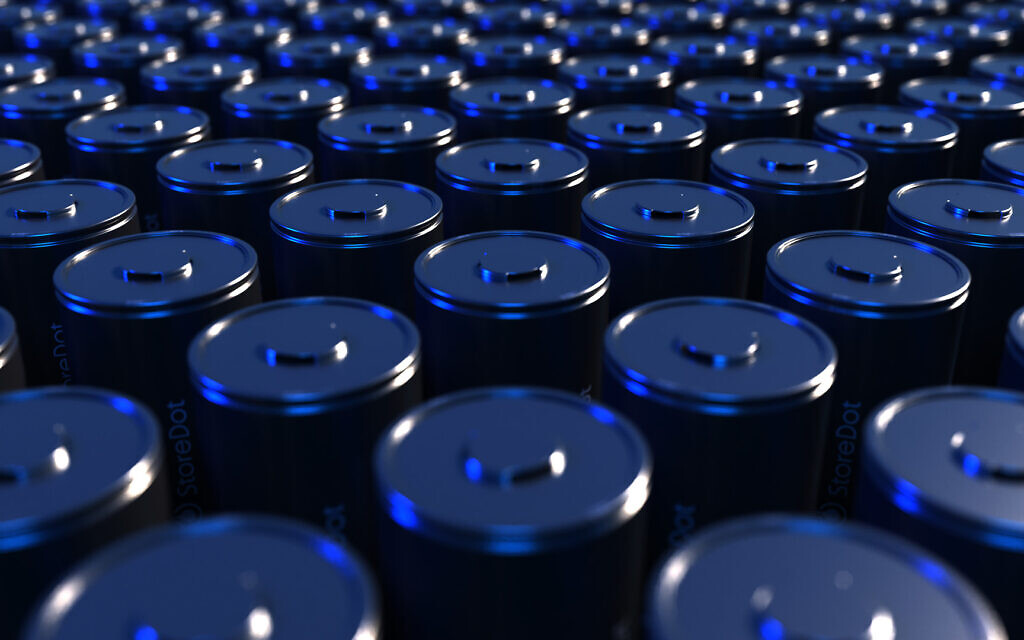


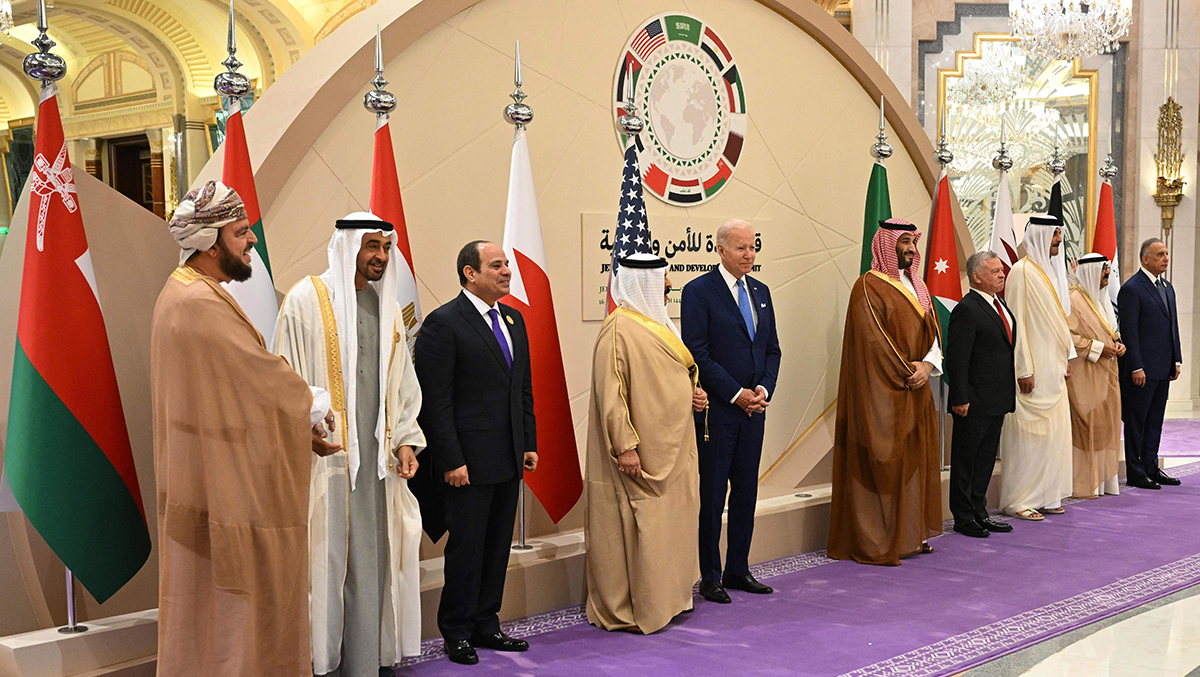
%20who%20is%20visiting%20the%20Agency%20on%20the%2075th%20anniversary%20of%20its%20founding%20in%20Langley,%20Virginia,%20on%20July%208,%202022%20-%20AFP.jpg?itok=IqZpGQ2M)


